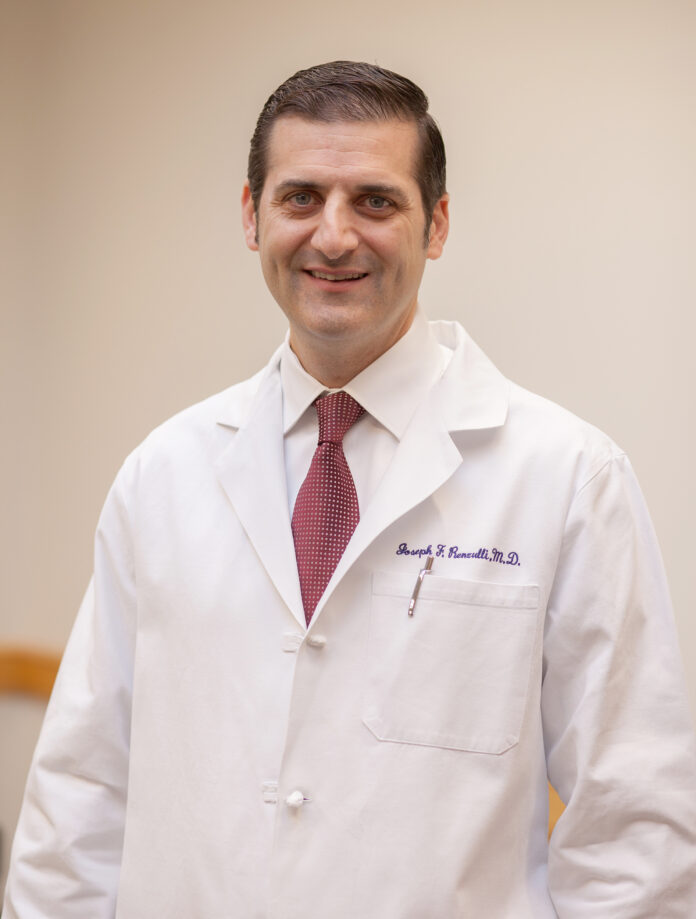Dr. Joseph Renzulli II, South County Health’s chief of urology, has conducted extensive research into ways to reduce or entirely eliminate the use of opioids for patients undergoing surgery. He recently presented the results of one of his studies at a urology conference in Providence, and discusses it further here.
PBN: Please summarize the findings from your recent study on minimizing or eliminating opioids for pain management in post-surgery patients.
RENZULLI: Our study evaluated a novel perioperative, non-opioid regimen for patients undergoing urologic robotic surgery. The regimen was adopted from the South County Orthopedic experience and tailored to patients with prostate and kidney cancer requiring surgery. We found that those who utilized the non-opioid regimen were statistically more likely to utilize less narcotics – reduced morphine equivalents – in the hospital, be discharged home from the hospital earlier, had lower overall self-reported pain scores and 96% of the patients were discharged without a prescription for a narcotic pain reliever.
Until this study, the majority of patients who underwent surgery would leave the hospital with a prescription for a narcotic. This would contribute to the overall availability of opioids in the community. This reduction is important because over half of all individuals who die from an opioid overdose had first abused a prescription narcotic.
PBN: Are you going to be conducting further research in this area?
RENZULLI: Yes, our goal is to expand this opioid-sparing regimen to several other institutions and perform a larger prospective clinical trial. The difficulty is obtaining adequate funding for the research. I have already discussed the study with collaborators at Massachusetts General Hospital – Dr. Adam Feldman – and Hartford Hospital – Dr. Joseph Wagner.
PBN: Based on your work, does South County Hospital have plans to change how opioids are prescribed and used in the surgical arena?
RENZULLI: The experience in both orthopedic surgery and urological surgery has already led to significant changes in the management of pre- and postoperative pain management. South County Hospital has led the way in adoption of reduced opioid utilization in the hospital and prescribing upon discharge for surgical patients. This has also been synergistic with the implementation of early recovery after surgery protocols developed for specialty specific surgeries.
PBN: Are you aware of other efforts similar to yours that may hint at a shift away from relying on opioids to manage post-surgery pain?
RENZULLI: The increased use of regional blocks in anesthesia for our patients has also led to decreased pain intraoperatively and postoperatively. Adherence to the above notes ERAS protocols have also allowed our patients improved outcomes and earlier convalescence with less opioid use.
PBN: Have you received any feedback on the study from others in the medical industry?
RENZULLI: The opioid-sparing regimen is gaining notoriety. Last summer the department of anesthesia and orthopedics at South County Hospital detailed the success of this drug cocktail on a segment of WJAR-TV [NBC 10’s] Health Check report with Barbara Morse-Silva. We have received inquiries from medical practitioners, medical facilities outside of Rhode Island, pharmacies and government agencies.
Elizabeth Graham is a PBN staff writer. She can be reached at Graham@pbn.com.













